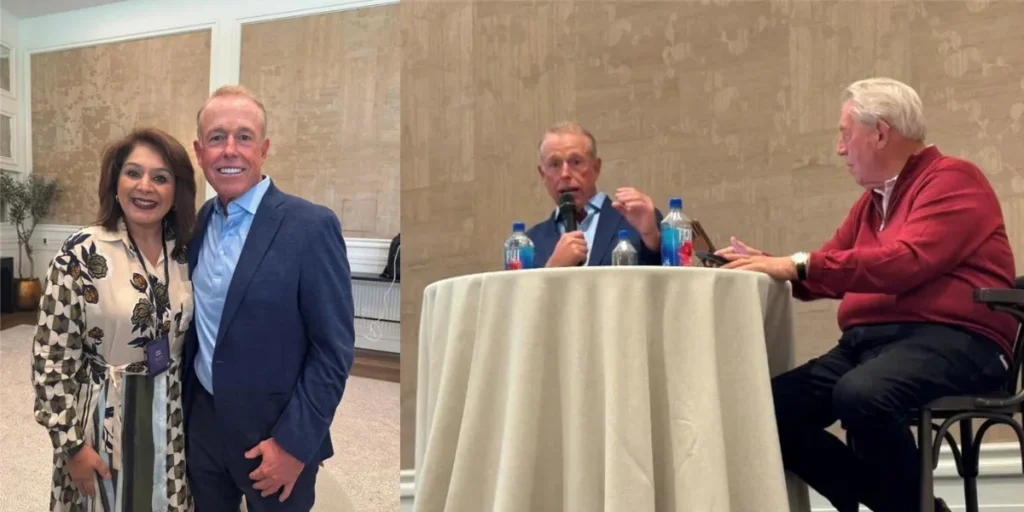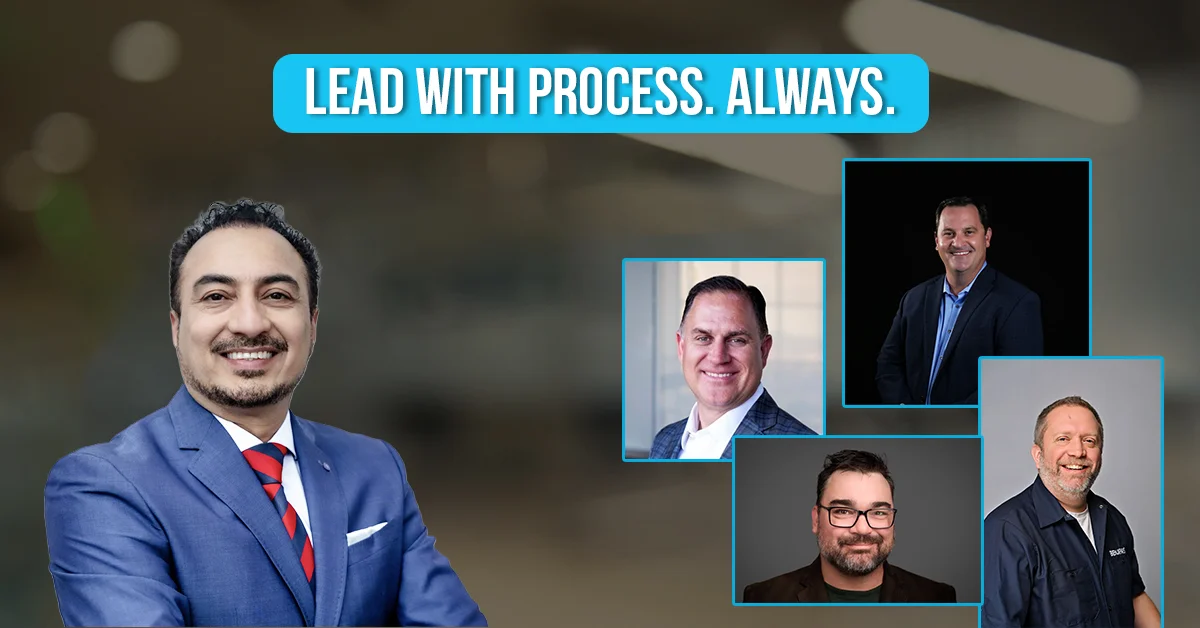Yesterday, I had the privilege of sitting in a room with Kevin Turner and John Maxwell. Kevin’s story is remarkable. He started as a cashier at Walmart and eventually became the CIO of the company, before going on to lead Sam’s Club and serve as COO at Microsoft under both Bill Gates and Satya Nadella.
But I’m saving the full backstory for another day, because there was one phrase Kevin shared that stuck with me. It came from Sam Walton himself, and it shaped everything Kevin came to believe about leadership.
Divine Discontent.
Sam used that phrase to describe a mindset: a relentless yet grounded belief that even when things are working, they can be better. That spirit was in Walmart’s DNA from the very beginning, and it’s the reason the company grew from a single store in Rogers, Arkansas, to the largest private employer in the world.
Let that sink in. This is a company with over 2 million associates worldwide, operating in 19 countries, and generating more than $550 billion in annual revenue. But it didn’t get there by chasing trends or simply scaling a good idea. It grew because its founder was never satisfied with “good enough.” Divine discontent wasn’t just a phrase Sam used; it was the standard he expected others to live by.

Kevin described Sam as someone who loved being in the stores. He’d walk the aisles, talk to customers, and listen to employees. It wasn’t performative. He was deeply curious. He’d visit competitor locations wearing his Walmart ballcap, notebook in hand, jotting down ideas he saw on other shelves. He was always looking to learn. Not just from other retailers, but from anyone doing something interesting, whether in process, pricing, customer experience, or technology.
That curiosity wasn’t a habit; it was cultural leadership. He created an environment where watching, adapting, and improving were expected. And he had no patience for complacency. As Kevin told it, Sam could be incredibly warm and generous in public, but in the boardroom, he was tough as nails. This was a man who believed second place was just the first loser. He set a standard and pushed others to rise to it, not through fear, but through conviction.
What made Sam Walton different wasn’t just that he had a big vision. It was that he held everyone accountable to it, starting with himself. He knew the difference between being grateful and being content. That distinction matters. Gratitude says, “I appreciate how far we’ve come.” Discontent says, “We’re not done yet.” The combination of the two is where growth lives.
And that’s what Kevin carried with him as he moved through the organization. He learned that the moment you start defending the way things are, you’ve already started falling behind. The truth is, one of the easiest things in leadership is to fix what someone else broke. The hardest thing? Challenging something you built yourself. It’s hard to call your baby ugly, but we all need to once in a while. When you’ve been successful, it’s easy to stop asking the hard questions. Divine discontent keeps you asking. It keeps you reaching.
That mindset became more than cultural—it became operational. It shaped how the company hired, how it measured performance, and how it listened to the front lines. Because at Walmart, innovation didn’t just live in technology; it lived in process, in discipline, and in the belief that every part of the business could be improved. Nothing was off-limits. That’s why Sam hired people who were hungry, not just experienced. Because hunger outpaces tenure every time when the goal is continuous progress.
I think that’s what hit me the most. We spend so much time in leadership talking about vision, mission, and culture. But rarely do we name what fuels all three. Divine discontent isn’t about burnout. It’s not about obsessing over flaws. It’s about staying awake. It’s about having enough humility to know you haven’t arrived, and enough urgency to do something about it.
And the most successful leaders I’ve met, the likes of John, Kevin, and even Nido Qubein are the ones who actually get things built and make things better. They carry that fire. Quietly. Constantly.
This phrase will stay with me, and with our organization, for a reason. Because the more I think about it, the more I realize how much it applies to every corner of leadership. Whether you’re running a small team or leading a global organization, the question is the same: Am I still improving, or am I just managing?
There’s more I want to unpack from this session over the next few weeks. Kevin’s stories about hiring, culture, and decision-making: there is so much gold that I’m excited to share with you.
In fact, I’ve already created a PPT to share with my team. But this idea of divine discontent is where it all starts. It’s the engine behind growth, behind trust, resilience, and yes, results.
The truth is, we don’t fall into excellence; we build toward it. We fight for it. And we do that by holding ourselves to a higher standard, even when things are going well.
Especially when things are going well.
As Kevin stated so eloquently, “The biggest room in my house is still the room for improvement.” Enough said.








